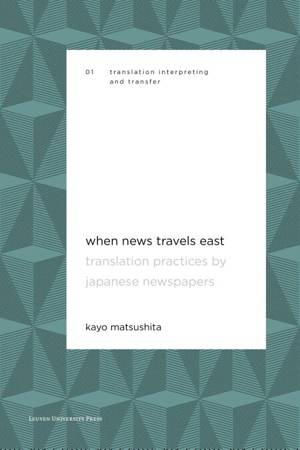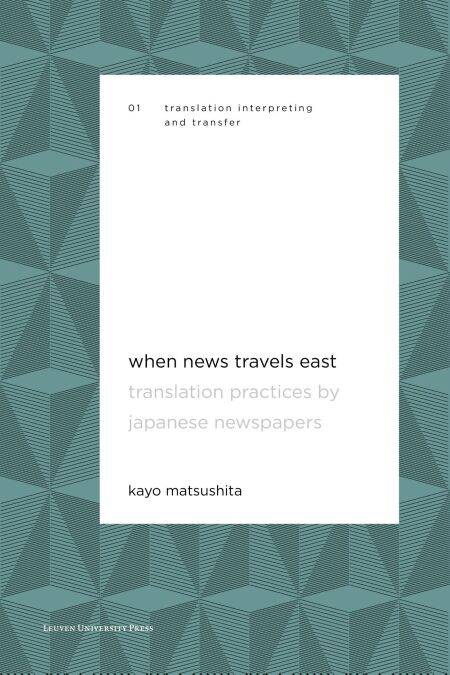
- Afhalen na 1 uur in een winkel met voorraad
- Gratis thuislevering in België vanaf € 30
- Ruim aanbod met 7 miljoen producten
- Afhalen na 1 uur in een winkel met voorraad
- Gratis thuislevering in België vanaf € 30
- Ruim aanbod met 7 miljoen producten
Zoeken
€ 29,50
+ 29 punten
Omschrijving
Journalism and unique translation practices by Japanese media today
International news stories provided to the public basically rely on translation. Most of this translation is done not by translators, but by journalists with practically no training in translation. What happens when the norms of journalism and those of translation clash? In this book, the author, a trained conference interpreter and former international journalist, investigates translator decisions in the practice of Japanese news translation. Her extensive analysis of texts from six major Japanese newspapers and interviews with Japanese "journalators" focuses on direct quotations, where accuracy is a journalistic priority but can generate loss of communication impact if implemented rigidly. She argues that many shifts from accuracy can be explained as risk management strategies. When News Travels East provides invaluable insight from an insider about news translation in Japan and beyond and paves the way for further research in the field.
International news stories provided to the public basically rely on translation. Most of this translation is done not by translators, but by journalists with practically no training in translation. What happens when the norms of journalism and those of translation clash? In this book, the author, a trained conference interpreter and former international journalist, investigates translator decisions in the practice of Japanese news translation. Her extensive analysis of texts from six major Japanese newspapers and interviews with Japanese "journalators" focuses on direct quotations, where accuracy is a journalistic priority but can generate loss of communication impact if implemented rigidly. She argues that many shifts from accuracy can be explained as risk management strategies. When News Travels East provides invaluable insight from an insider about news translation in Japan and beyond and paves the way for further research in the field.
Specificaties
Betrokkenen
- Auteur(s):
- Uitgeverij:
Inhoud
- Aantal bladzijden:
- 209
- Taal:
- Engels
- Reeks:
Eigenschappen
- Productcode (EAN):
- 9789461663047
- Verschijningsdatum:
- 5/11/2019
- Uitvoering:
- E-book
- Beveiligd met:
- Digital watermarking
- Formaat:

Alleen bij Standaard Boekhandel
+ 29 punten op je klantenkaart van Standaard Boekhandel
Beoordelingen
We publiceren alleen reviews die voldoen aan de voorwaarden voor reviews. Bekijk onze voorwaarden voor reviews.







